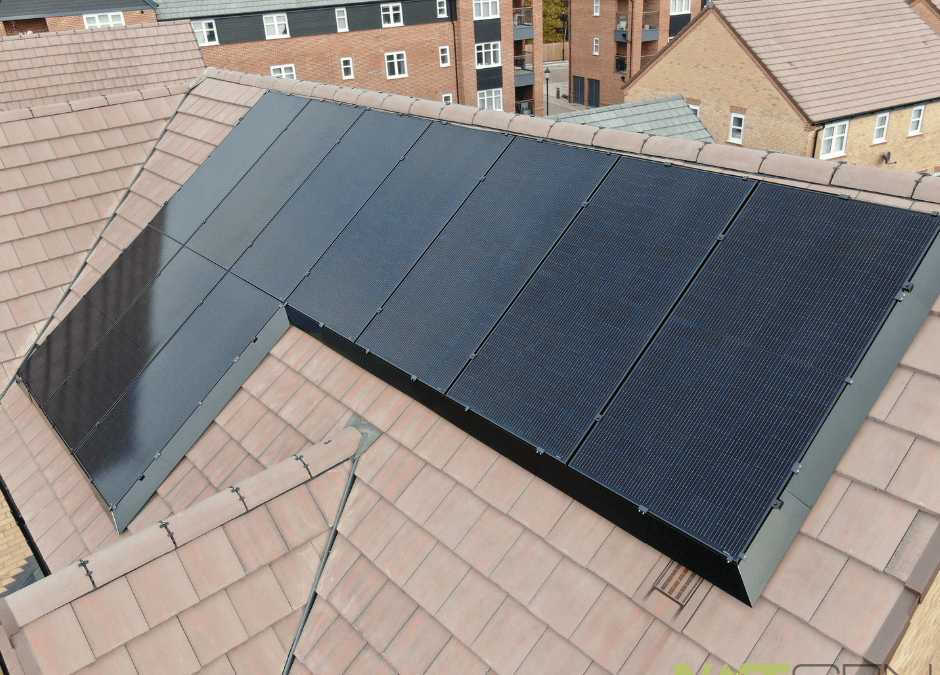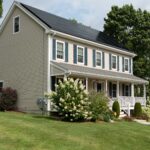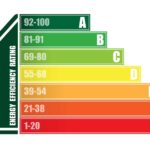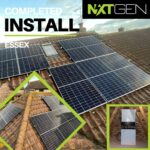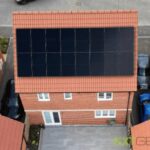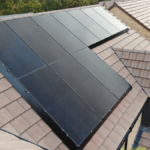Solar panels are a great way to generate clean and renewable energy for your home or business. However, they can also attract unwanted visitors such as pigeons, squirrels, rats, and other pests that can cause damage, noise, and health risks. In this blog post, I will explain why you need to pigeon proof your solar panels, why pigeons and other pests love solar panels, what problems they can cause, and how you can prevent them from nesting under your solar panels.
Why do pigeons and other pests love solar panels?
Pigeons and other pests are attracted to solar panels for several reasons. First, solar panels provide a warm and sheltered place for them to nest and breed, especially during the cold and rainy seasons. Second, solar panels offer protection from predators such as cats, hawks, and owls that may prey on them. Third, solar panels are often located near food sources such as bird feeders, rubbish bins, gardens, and crops.
What problems can pigeons and other pests cause under solar panels?
Pigeons and other pests can cause a number of problems under solar panels, such as:
- Damage: Pigeons and other pests can scratch, chew, or pull the wires and connectors under the solar panels, which can affect their performance and efficiency. They can also damage the roof tiles, insulation, and ventilation systems under the solar panels, which can lead to leaks, mould, and fire hazards.
- Noise: Pigeons and other pests can make loud and annoying noises under the solar panels, such as cooing, scratching, scurrying, and fighting. This can disturb your peace and comfort at home or work.
- Health: Pigeons and other pests can leave behind droppings, feathers, nests, eggs, carcasses, and parasites under the solar panels, which can contaminate the water supply, soil, and air quality. These can also attract flies, maggots, rats, and other vermin that can spread diseases such as salmonella, histoplasmosis, psittacosis, cryptococcosis, bird mites, fleas, ticks, lice, and worms. These diseases can affect humans and pets alike and can cause serious illness or even death.
How to prevent pigeons and other pests from nesting under solar panels?
The best way to prevent pigeons and other pests from nesting under your solar panels is to install a pigeon proofing system that blocks their access to the gap between the solar panels and the roof. There are different types of pigeon proofing systems available in the UK market, such as:
- Mesh: Mesh is a flexible material that is attached to the edges of the solar panels with clips or screws. It creates a barrier that prevents pigeons and other pests from entering the gap under the solar panels. Mesh is easy to install and remove and does not affect the appearance or function of the solar panels.
- Spikes: Spikes are metal or plastic rods that are fixed to the edges of the solar panels with adhesive or screws. They create a deterrent that discourages pigeons and other pests from landing or roosting on the solar panels. Spikes are durable and weather-resistant but may be visible from the ground.
- PanelProof: PanelProof is a patented product that is designed specifically for pigeon proofing solar panels. It consists of aluminium strips that are attached to the edges of the solar panels with adhesive tape. It creates a seal that prevents pigeons and other pests from entering the gap under the solar panels. PanelProof is aesthetically pleasing and rust-proof and does not interfere with the performance or warranty of the solar panels.
- SolaSkirt: Solaskirt is a product that is designed to protect solar panels from pigeons and other birds, as well as to improve the appearance of the panels. It is a system of aluminium clamps and skirts that attach to the sides of the solar panels, covering the gaps, rails, cables and rain-water run-off. Solaskirt prevents pigeons from nesting under the solar panels, which can cause damage, mess and health hazards. It also gives the panels a sleek, black-edged look that enhances their aesthetics. Solaskirt is manufactured by Titan Eco, a company that specializes in solar panel protection and pigeon proofing.
If you are looking for a professional service to pigeon proof your solar panels in the UK, you can contact one of these companies:
Here at NXTGEN Energy we can pigeon proof your solar panels. If you need to pigeon proof your solar panels due to pigeons, other birds or pests contact us on 01268 928 690 or info@nxtgen.ltd or click on the ‘Enquire Now’ button below for a free no-obligation quote for solar panel pigeon proofing. We can install pigeon proofing mesh or SolaSkirt which is a premium pigeon proofing solution. Remember we need to know how many solar panels you have on your roof to work out your quote, as solar panel pigeon proofing is priced per solar panel.
.I hope this blog post helps you understand how to protect your solar panels from pigeons and other pests. If you have any questions or feedback, please leave a comment below. Thank you for reading!
Frequently Asked Questions about Pigeon Proofing
Just like any animal, pigeons will seek shelter from predators and the elements. Unfortunately, pigeons will often use man-made structures to build nests and raise their young, and solar panels can make the perfect nesting site for pigeons, birds and other pests. The huge surge in solar panels being fitted in the UK this year has made a new home for urban birds across the country.
One of the most effective (and the cheapest) ways to deter pigeons from nesting under your solar panels is to put bird mesh in place which is designed to seal off the area underneath the panels. Bird mesh clips attach directly to your solar panels to secure the panels while still allowing air to circulate.
Pigeons love nesting and roosting on cliffs because places like cliffs keep them safe from the weather and predators. Roosting under solar panels offers the same benefits. The space beneath the solar panels provides a warm, shady place to build a nest while sheltering the pigeons from predators and the elements.
The cost of pigeon proofing solar panels varies depending on the size and type of panels being protected. However, generally it costs around £50-£100 per metre for a mesh or netting system. Therefore, for an average-sized solar panel of 1m x 2m, it’ll cost approximately £300 to £600 to pigeon proof it.
Pigeon droppings, dirt and mess that begin to cover your Solar Panels, will have an impact on your Solar Panel’s ability to generate solar energy. By pigeons covering the surface of your solar panels, there will be a decrease in panel performance, and effectiveness and you will not generate as much electricity as you would without the pigeons.
Yes, pigeons have discovered that solar panels provide the ideal nest location as the solar panels provide protection against the elements and from predator’s like hawks and owls.
Latest Solar Panel Posts
- Why Leisure Centres Should Invest in Solar PanelsIn recent years, the concept of sustainability has become increasingly vital in various industries, including leisure centres. As the global focus shifts towards environmental conservation and renewable energy sources, leisure centres are recognizing the importance of investing in sustainable practices to reduce their operating costs and their carbon footprint. One such sustainable solution gaining traction… Read more: Why Leisure Centres Should Invest in Solar Panels
- School Funding – Solar for SchoolsSolar energy is revolutionizing the way educational institutions approach sustainability and energy consumption. As schools seek innovative solutions to reduce costs, educate students about renewable energy, and minimize their environmental impact, the adoption of solar power has emerged as a compelling choice. Solar For Schools, a leading initiative in the field, empowers educational institutions to… Read more: School Funding – Solar for Schools
- Homes with solar panels can sell for more than those withoutHarnessing the power of the sun to generate clean, renewable energy is not only a sustainable choice for homeowners but also a lucrative investment in the UK property market. Homes equipped with solar panels are increasingly commanding higher prices and attracting more buyers than their non-solar counterparts. In this blog post, we’ll delve into the… Read more: Homes with solar panels can sell for more than those without
- Solar Panels and EPC RatingsSolar panels have become increasingly popular as a sustainable energy solution, offering numerous benefits for both residential and commercial properties. In parallel, Energy Performance Certificate (EPC) ratings serve as indicators of a building’s energy efficiency. Understanding how solar panels can impact EPC ratings is crucial for maximizing energy savings and environmental benefits. This blog post… Read more: Solar Panels and EPC Ratings
- Is it worth buying solar panels in Basildon, Essex?☀️ Over 10,000 homes in Basildon have a solar panel system installed. ☀️ You’ll normally break even on solar panels in less than 10 years. ☀️ A 3.5kW solar panel system will cost about £7,000 on average. Solar panels are becoming more affordable and more common in the UK, with over 1.3 million households already… Read more: Is it worth buying solar panels in Basildon, Essex?
- Wiltshire’s Good Energy Partners with bigHead to Achieve 50% Solar Energy GoalWiltshire-based Good Energy has played a crucial role in helping Dorset manufacturing firm bigHead transition to utilizing solar power for 50% of its energy needs. Thanks to the collaboration between the two companies, bigHead has successfully installed 130 solar panels on the roof of its Verwood factory, resulting in significant cost savings of over £4,000… Read more: Wiltshire’s Good Energy Partners with bigHead to Achieve 50% Solar Energy Goal
- Unveiling the Perfect Fit: How Many Solar Panels Can Your Roof Handle?Harnessing the power of the sun is an attractive proposition for many UK homeowners. But before diving headfirst into solar energy, a crucial question arises: how many solar panels can fit on your roof? The answer, unfortunately, isn’t a simple one. It’s a captivating interplay between several factors, each one requiring careful consideration. Understanding Your… Read more: Unveiling the Perfect Fit: How Many Solar Panels Can Your Roof Handle?
- Powering Care with Sunshine: How Solar Panels Benefit Nursing HomesNursing homes are the backbone of our communities, providing essential care for our elderly population. But keeping these facilities running smoothly requires a significant amount of energy – lighting, heating, cooling and medical equipment all contribute to a hefty energy bill. This is where commercial solar panels come in, offering a win-win solution for both… Read more: Powering Care with Sunshine: How Solar Panels Benefit Nursing Homes
- Who are NXTGEN Energy Ltd?NXTGEN Energy Ltd are a solar energy company based in Rayleigh, Essex, UK. They specialize in the installation of solar panels, battery storage systems, and electric vehicle chargers for homes and businesses across the UK. They are MCS certified, which means they meet the Microgeneration Certification Scheme’s standards for quality and safety. This makes them… Read more: Who are NXTGEN Energy Ltd?
- Why UK Homeowners with Solar Panels Need Bird Proofing (Beyond the Basics)Imagine waking up to the quiet hum of your solar panels, generating clean energy to power your home. It’s a beautiful image, symbolizing lower electricity bills and sustainability. But what if a gang of birds decided the solar panels on your roof were the perfect spot for their new condo complex? Unfortunately, this idyllic scene… Read more: Why UK Homeowners with Solar Panels Need Bird Proofing (Beyond the Basics)

